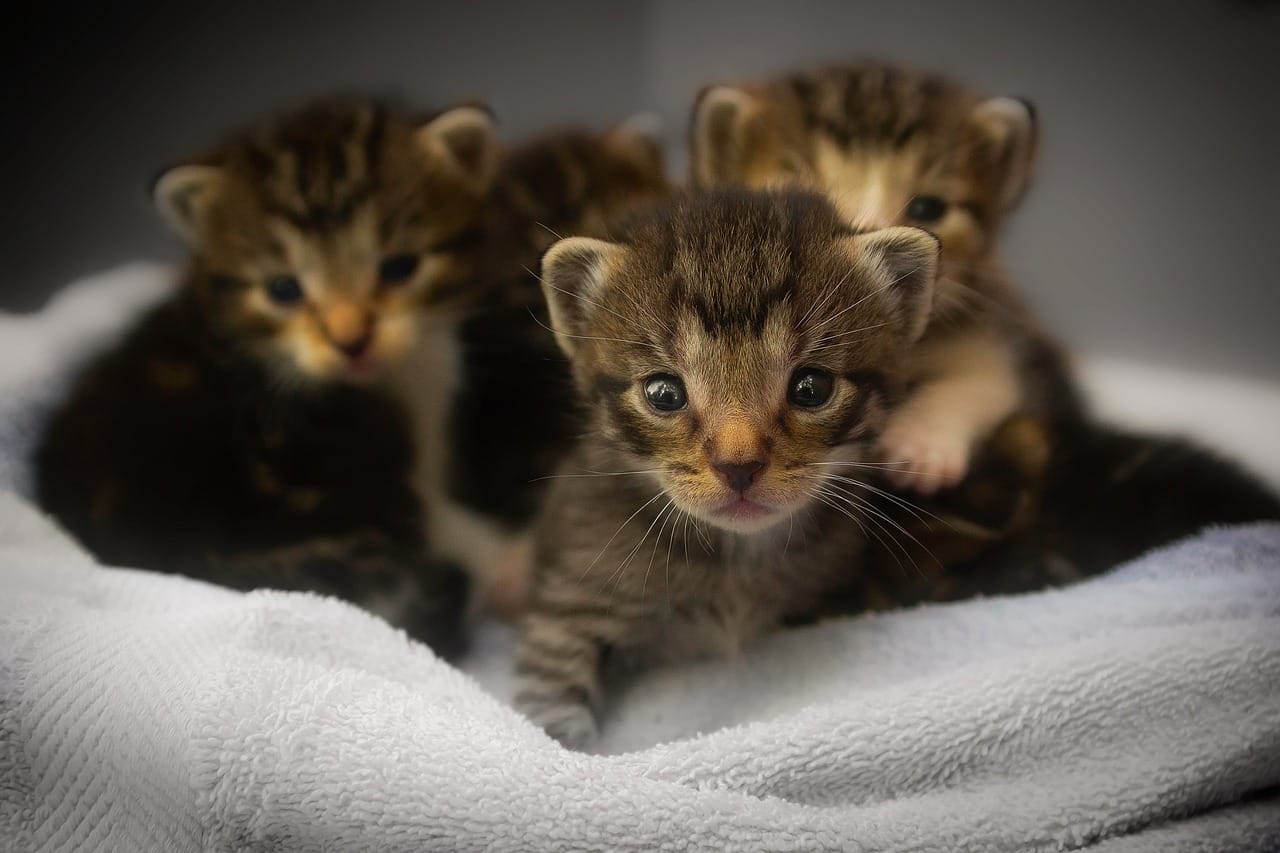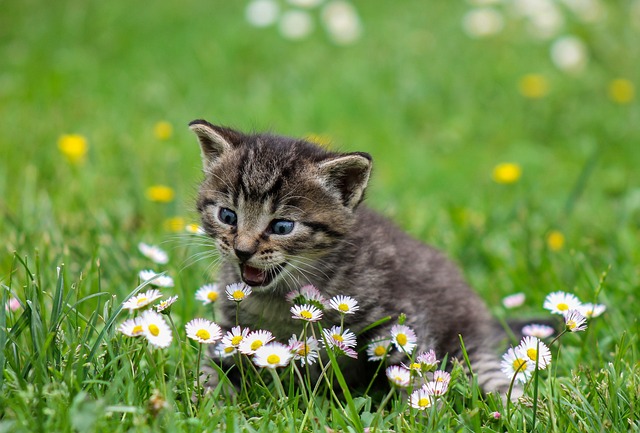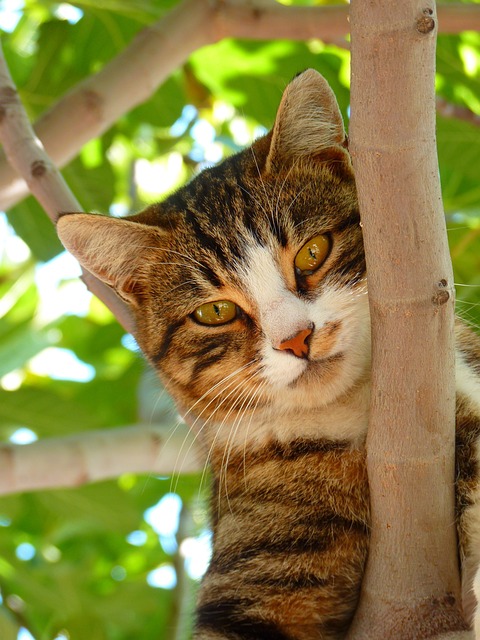Welcoming a litter of newborn kittens into the world is an extraordinary experience that requires careful attention and nurturing. In this guide, we’ll explore essential tips and techniques for providing optimal care for newborn kittens, ensuring they thrive in their earliest days of life.
Caring for Kittens from Birth to Eight Weeks
Week 1: The Neonatal Stage
Feeding: Newborn kittens rely entirely on their mother’s milk for nutrition during the first few weeks of life. If the mother is present and able to nurse, allow her to do so freely. Ensure that the mother has access to a high-quality diet to support milk production. If the mother is unavailable or unable to nurse, consult with a veterinarian for guidance on appropriate milk replacers and feeding techniques.
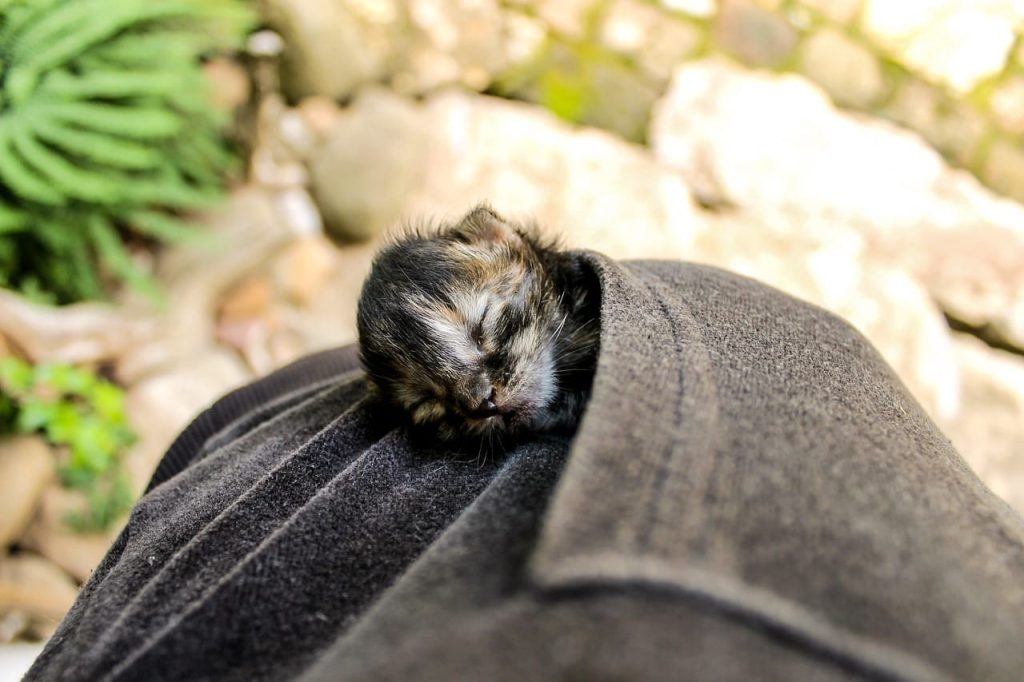
Environment: Create a warm and quiet nesting area for the mother and kittens, away from drafts and disturbances. Provide a comfortable bedding material, such as towels or blankets, for the mother to nurse and care for her litter. Keep the environment clean and dry to prevent the risk of infections.
Development: During the neonatal stage, kittens are completely dependent on their mother for warmth, nourishment, and stimulation. Their eyes and ears are closed, and they spend most of their time sleeping and nursing. Monitor the kittens closely for signs of health issues, such as failure to thrive or infections, and seek veterinary care if necessary.
Week 2: Transitioning to Awareness
Feeding: Continue to monitor the mother’s milk supply and the kittens’ nursing behavior. If supplementing with milk replacers, follow the veterinarian’s recommendations for feeding frequency and amounts. Introduce a shallow dish of water near the nesting area to encourage the mother to drink and stay hydrated.
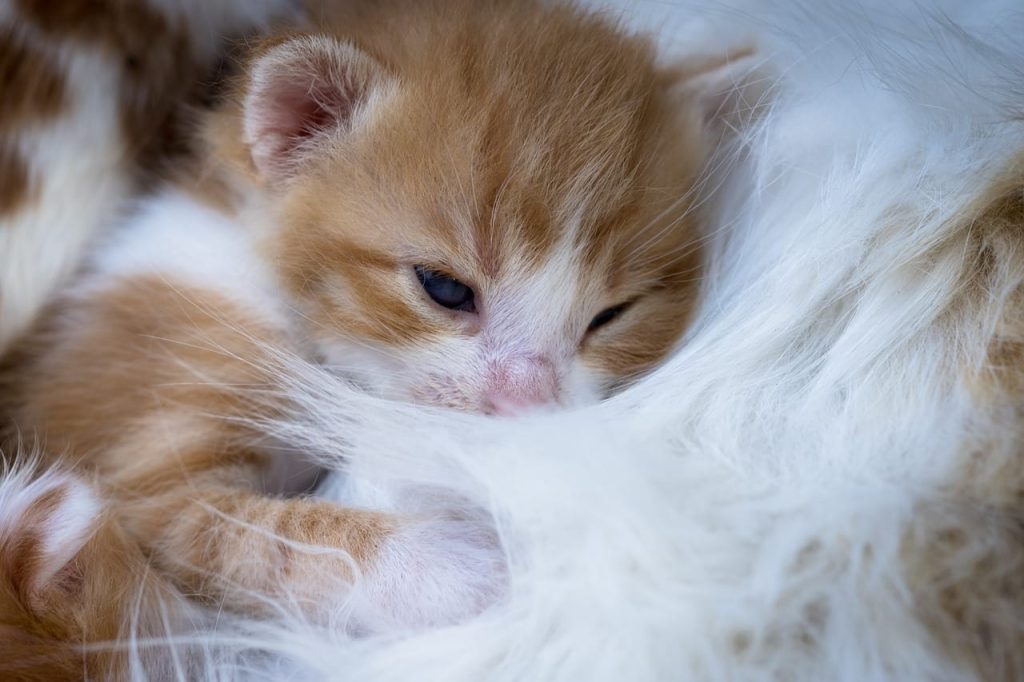
Environment: As the kittens’ senses begin to develop, provide gentle environmental stimuli, such as soft sounds and gentle handling, to promote socialization and sensory awareness. Ensure that the nesting area remains clean and comfortable, with fresh bedding provided as needed.
Development: By the end of the second week, kittens’ ears may start to open, allowing them to hear faint sounds. Their sense of smell also becomes more acute. While they may still spend the majority of their time sleeping and nursing, you may notice brief periods of wakefulness and exploration within the nesting area.
Week 3: Early Exploration
Feeding: Continue to monitor the mother’s milk supply and the kittens’ nursing habits. Offer small amounts of high-quality kitten food mixed with water or milk replacer to introduce them to solid food. Gradually increase the frequency and amount of food offered as they begin to wean.
Environment: Provide a larger space for the kittens to explore within the nesting area, incorporating safe toys and objects for enrichment. Keep the environment warm and secure, with access to a litter box for the mother and kittens to begin learning elimination habits.
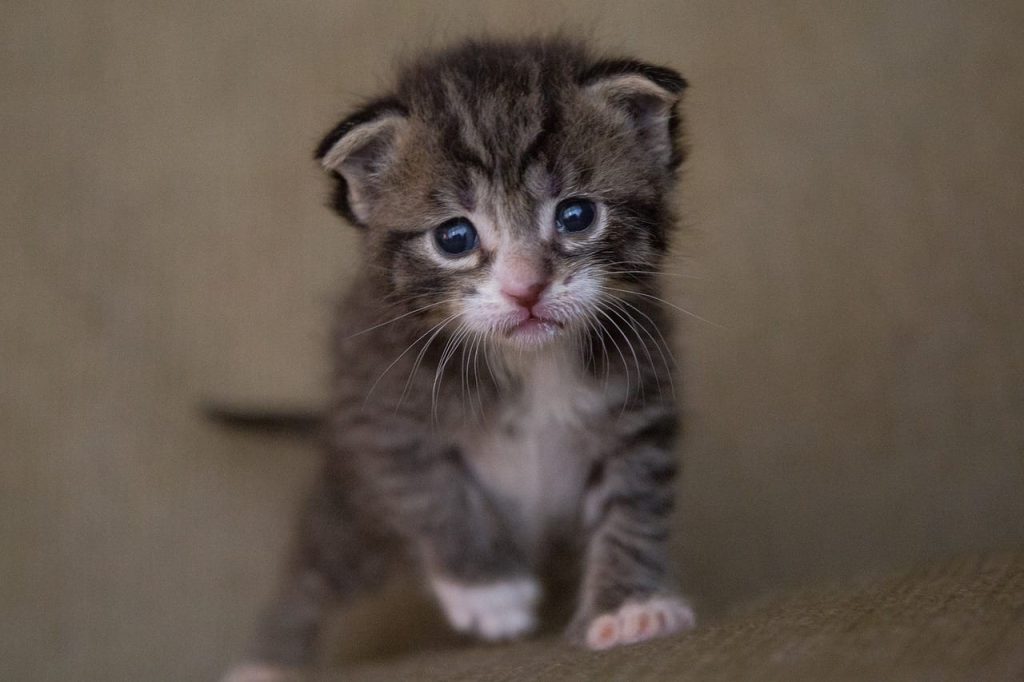
Development: By week 3, kittens’ eyes are fully open, and they begin to explore their surroundings more actively. They may start to play with littermates and engage in social interactions with their mother and siblings. Monitor their growth and development closely, noting any concerns or abnormalities for veterinary evaluation.
Week 4-8: Growing Independence
Feeding: Continue to offer a combination of mother’s milk, kitten food, and water or milk replacer as the kittens transition to solid food. Gradually reduce the frequency of nursing sessions as they become more independent eaters. Ensure that they have access to fresh water at all times.
Environment: Provide a larger and more stimulating environment for the kittens to explore, including access to safe toys, scratching posts, and climbing structures. Introduce them to different textures and surfaces to encourage physical and mental stimulation. Begin the process of litter training, providing multiple litter boxes in easily accessible locations.
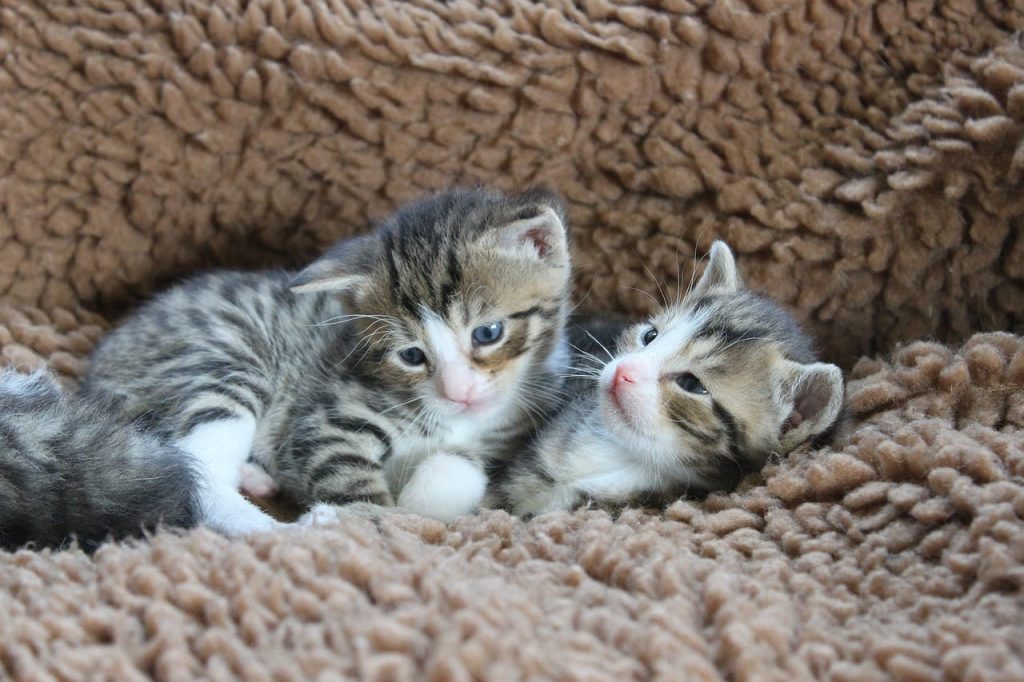
Development: During weeks 4-8, kittens experience rapid growth and development. They become more coordinated and adventurous, exploring their surroundings with increasing confidence. Socialization with humans and other animals becomes crucial during this period to ensure they grow into well-adjusted adult cats. Schedule regular veterinary check-ups to monitor their health and administer necessary vaccinations and parasite control treatments.
Newborn Kitten Feeding
Feeding newborn kittens requires careful attention and adherence to specific guidelines to ensure their health and proper growth. Here’s a comprehensive set of guidelines for feeding newborn kittens:
- Consult with a Veterinarian: Before making any decisions regarding feeding, consult with a veterinarian, especially if the mother cat is unavailable or unable to nurse. A vet can provide guidance on appropriate feeding methods, frequency, and formula selection.
- Assess the Mother’s Ability to Nurse: If the mother cat is present and able to nurse, allow her to do so freely. Mother’s milk provides essential nutrients and antibodies crucial for kittens’ health and immune system development.
- Ensure Proper Nursing Environment: Provide a warm, quiet, and comfortable environment for the mother cat and kittens to nurse. Keep the nesting area clean and free from drafts to prevent chilling and potential health issues.
- Monitor Nursing Behavior: Observe the kittens’ nursing behavior to ensure they are receiving adequate milk. Signs of successful nursing include audible sucking sounds, contented purring, and visible milk in their bellies.
- Supplementing with Milk Replacer: If the mother cat is unavailable or unable to nurse, consult with a veterinarian to select a suitable milk replacer formulated specifically for kittens. Follow the manufacturer’s instructions for mixing and feeding.
- Feeding Frequency: Newborn kittens need frequent feeding sessions, typically every 2-4 hours around the clock. As they grow older, the frequency of feedings may decrease gradually.
- Feeding Technique: Use a clean, sterilized syringe or nursing bottle with an appropriately sized nipple to feed orphaned or hand-reared kittens. Hold the kitten in an upright position and allow them to suckle at their own pace, avoiding force-feeding.
- Monitor Weight Gain: Regularly weigh the kittens to track their growth and ensure they are gaining weight steadily. A healthy weight gain indicates adequate nutrition and proper feeding.
- Introducing Solid Food: Around 3-4 weeks of age, introduce small amounts of high-quality kitten food mixed with water or milk replacer to encourage weaning. Offer the food in shallow dishes or saucers and gradually transition to solid food as the kittens become more accustomed to eating.
- Hydration: Provide access to fresh, clean water once the kittens start eating solid food. Monitor their water intake to ensure they remain hydrated, especially during hot weather or if they are consuming dry kibble.
- Observe for Signs of Health Issues: Monitor the kittens closely for any signs of health problems, such as lethargy, diarrhea, vomiting, or failure to thrive. Seek veterinary care promptly if you notice any concerning symptoms.
- Weaning Process: Gradually reduce the frequency of nursing sessions as the kittens transition to solid food. By 6-8 weeks of age, most kittens should be fully weaned and eating a diet consisting primarily of kitten food.
- Follow-Up Veterinary Care: Schedule regular veterinary check-ups for the kittens to monitor their health, administer vaccinations, and address any health concerns or developmental issues that may arise.
Weight And Physical Development Of Newborn Kittens
Week 1: Neonatal Stage
- Weight: Newborn kittens typically weigh between 3-4 ounces at birth.
- Physical Condition: Kittens are born with closed eyes and ears, and their bodies are primarily covered in soft fur. They are completely dependent on their mother for warmth, nourishment, and care.
Week 2: Transitioning to Awareness
- Weight: Kittens may gain approximately 0.5-1 ounce per day during the second week.
- Physical Condition: Eyes begin to open around days 7-10, revealing blue or grayish-blue irises. Ears may also start to unfold. Kittens spend most of their time sleeping and nursing but may show brief periods of wakefulness and increased movement.
Week 3: Early Exploration
- Weight: Kittens continue to gain weight steadily, typically doubling their birth weight by the end of the third week.
- Physical Condition: Eyes are fully open, and kittens begin to explore their surroundings more actively. They may attempt to stand and walk, although their movements are still unsteady. Social interactions with littermates and the mother increase.
Week 4-8: Growing Independence
- Weight: Kittens experience rapid growth during weeks 4-8, with weight gain averaging around 1-2 ounces per week.
- Physical Condition: Coordination improves, and kittens become more adventurous in their exploration. They begin to play with littermates, pouncing and wrestling as they develop their motor skills. By week 8, they may be fully weaned and exhibiting behaviors typical of adult cats, such as grooming themselves and using a litter box independently.
Bathing newborn kittens
Bathing newborn kittens is generally unnecessary and can even be harmful if done incorrectly. Newborn kittens are fragile and highly susceptible to temperature fluctuations, and their mother typically takes care of grooming them. However, there may be rare instances where bathing is necessary, such as if a kitten becomes soiled with feces or other substances that could pose a health risk. In such cases, it’s essential to proceed with caution and follow specific guidelines to ensure the kittens’ safety and well-being.
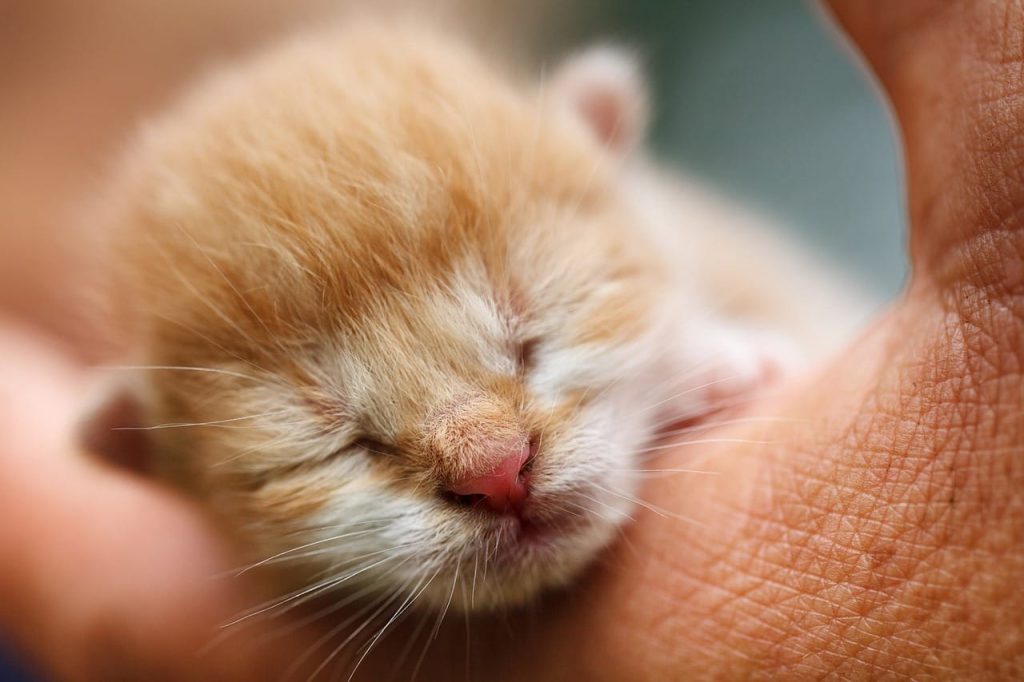
Here’s a guide on how to bathe newborn kittens safely:
- Assess the Need: Determine if bathing is truly necessary. If the kitten’s fur is soiled with feces or other substances that could cause skin irritation or infection, bathing may be warranted. Otherwise, it’s best to avoid unnecessary baths, as newborn kittens are highly sensitive and grooming by the mother is usually sufficient.
- Prepare the Bathing Area: Set up a warm, draft-free area for bathing, such as a sink or basin lined with a soft towel. Fill the basin with lukewarm water, ensuring it’s shallow enough to prevent the kitten from becoming submerged.
- Use Mild, Kitten-Safe Shampoo: Choose a gentle, kitten-specific shampoo that is free from harsh chemicals and fragrances. Avoid using human or adult cat shampoos, as they may be too harsh for newborn kittens’ delicate skin.
- Handle the Kitten Gently: Carefully and gently place the kitten in the warm water, supporting its body and ensuring its head remains above water at all times. Use your hand or a soft cloth to wet the kitten’s fur, avoiding its face and ears.
- Apply Shampoo Sparingly: Dispense a small amount of kitten shampoo into your hand and gently massage it into the kitten’s fur, focusing on areas that are particularly soiled. Be careful not to scrub too vigorously, as newborn kittens’ skin is sensitive.
- Rinse Thoroughly: Rinse the shampoo from the kitten’s fur with lukewarm water, ensuring all traces of shampoo are removed. Use a cup or your hand to pour water gently over the kitten, taking care to avoid getting water in its ears or eyes.
- Dry the Kitten: Wrap the kitten in a soft, absorbent towel and gently pat its fur dry. Avoid rubbing or vigorously towel-drying the kitten, as this could cause irritation or discomfort.
- Keep the Kitten Warm: After bathing, place the kitten in a warm, draft-free environment to dry completely. You can use a hairdryer set to low heat and held at a safe distance to speed up the drying process, but be cautious not to overheat or stress the kitten.
- Monitor for Signs of Distress: Keep a close eye on the kitten after bathing for any signs of distress, such as shivering, excessive crying, or lethargy. If the kitten appears unwell or is experiencing difficulty regulating its body temperature, seek veterinary care immediately.
- Minimize Bathing Frequency: Whenever possible, avoid bathing newborn kittens unless absolutely necessary. Instead, encourage the mother cat to groom them regularly, as her grooming provides important stimulation and bonding opportunities for the kittens.
General Tips To Care For Newborn Kittens
Creating a Safe and Comfortable Environment
Setting up a cozy and secure nesting area is the first step in caring for newborn kittens. Choose a warm and quiet location, away from drafts and disturbances, and provide soft bedding materials for comfort. Maintain an optimal room temperature to keep the kittens warm, using heating pads or heat lamps cautiously to prevent overheating.
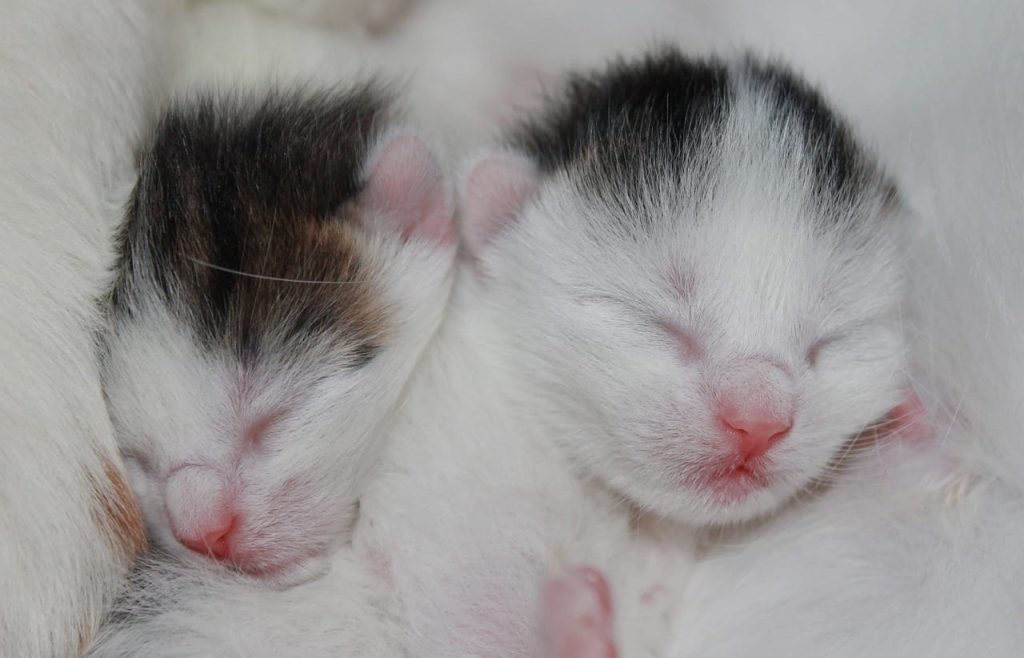
Feeding and Nutrition
Understanding nursing behavior is key to ensuring that newborn kitties receive the nutrition they need. Monitor for signs of successful nursing, including contented purring and visible milk consumption. If the mother cat is unavailable or unable to nurse, learn the techniques for bottle-feeding orphaned or rejected kittens, selecting appropriate kitten milk replacer and establishing feeding schedules.
Hygiene and Grooming of Newborn Kittens
Maintaining hygiene is essential for the health and well-being of newborn kittens. Stimulate elimination by gently massaging the kittens’ genital area after each feeding to encourage urination and defecation. Use damp cotton balls or soft cloths to clean their faces and bodies, avoiding harsh chemicals and ensuring gentle handling during grooming.
Monitoring Health and Development of Newborn Kittens
Regular weighing is crucial for tracking the kittens’ growth and development. Monitor for signs of malnutrition or health concerns, such as lethargy or poor weight gain, and seek veterinary care promptly if needed. Observe changes in behavior and activity levels, noting any signs of distress or illness that may require attention.
Socialization and Interaction
Encourage positive interactions between the kittens, their mother, and littermates to promote bonding and socialization. Provide gentle handling and introduce them to new sights, sounds, and experiences gradually to help them adjust to their environment. Create a stimulating yet safe space for exploration and play as they grow.
Conclusion
Caring for newborn kittens requires dedication, patience, and a proactive approach to ensure their health and well-being during this critical stage of life. By following these essential tips and techniques, you can nurture your newborn kittens and help them thrive as they embark on their journey of growth and development.

